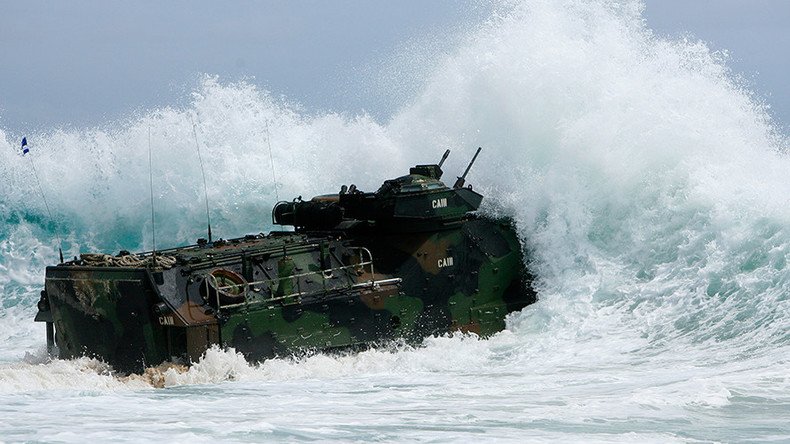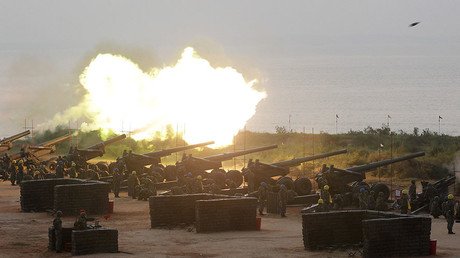US lawmakers pitch greater military, diplomatic ties with Taiwan

With President Donald Trump in China negotiating trade and discussing North Korea, several Republican lawmakers are advocating for greater diplomatic and military ties with Taiwan, a move that’s likely to infuriate Beijing.
Representatives Michael McCaul (R-Texas) and Robert Pittenger (R-North Carolina) introduced the “Taiwan Security Act” in the House, while Senator Tom Cotton (R-Arkansas) introduced it in the upper chamber. The bill seeks to expand already strong military ties between the US and the disputed island in a range of ways.
Introduced the Taiwan Security Act with @reppittenger to prioritize our friends in Taiwan over Beijing's demands: https://t.co/aWSPfEAgwd
— Michael McCaul (@RepMcCaul) November 7, 2017
It “reestablishes an annual strategic dialogue” between Washington and Taipei “in order to ensure the regular transfer of defense articles,” the proposed bill states. It also envisages the US inviting the Taiwanese military to participate in the Pacific Rim (RIMPAC) naval exercises and Red Flag air combat exercises.
Hosted by the US every two years in the Hawaiian islands, RIMPAC involves 26 countries and is the largest maritime military exercise in the world. The Red Flag air combat exercise includes 28 countries and is conducted over bombing and gunnery ranges at the Nellis Air Force Base in Nevada.
READ MORE: Trump in China: Will Xi pressure US leader to accept his vision of global future?
The proposed legislation also “expresses Congressional support” for Taiwan’s plan to spend 3 percent of its gross domestic product on defense, and pushes for Taiwan to “suspend all economic ties” with North Korea.
The act further “mandates diplomatic exchanges” between senior US and Taiwanese officials. US Navy visits to Taiwanese ports and reciprocal port calls would also be required.
The Trump administration signed a $1.4 billion arms deal with Taiwan in June, prompting outrage from China. The package included maintenance support for early-warning radar, high-speed anti-radiation missiles, as well as torpedoes and missile components. Previous US arms packages also included two frigates as well as anti-tank missiles and amphibious attack vehicles.
The arms deal sends “a very wrong signal to the ‘Taiwan independence’ forces and harms the cross-Straits peace and stability,” the Chinese embassy in the US argued.
In May, Taiwan included live-fire drills as part of its annual exercises to prepare its military to defend against potential attacks from mainland China. Those maneuvers were observed by a team of retired US generals who offered recommendations, according to a military source cited by the South China Morning Post.
In 1949, Taiwan became a refuge for the Republic of China government after it was ousted by Mao Zedong and the Chinese Communist Party. By 1971, however, the UN had recognized Beijing as the only legitimate Chinese government, leaving Taiwan in a legal limbo. China considers Taiwan a renegade province that must be united with the mainland. Beijing insists that the world community stick to the “One China policy,” meaning that countries seeking diplomatic relations with the People's Republic of China must sever official ties with Taiwan.













